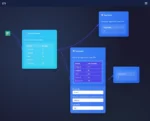In today’s rapidly evolving technological landscape, artificial intelligence (AI) has transitioned from futuristic buzzword to critical business advantage. As organizations race to leverage AI for predictive analytics, automation, decision-making, and innovation, the importance of robust and reliable data infrastructure cannot be overstated. At the heart of building this foundational layer lie data engineers—the modern architects responsible for designing, optimizing, and managing the pipelines that transform raw data into actionable insights. Harnessing the power of AI requires more than just advanced algorithms; it demands skilled data engineers who can operationalize and scale these algorithms sustainably. Let’s dive deeper into understanding the evolving role of data engineers and why their roles are pivotal to successful AI implementation.
The Emergence of AI and Its Impact on Data Engineering
Artificial intelligence and machine learning are reshaping corporate decision-making capabilities, enabling unprecedented accuracy, efficiency, and insight generation. However, AI models can only perform optimally when they consume clean, well-structured, and consistently accessible data. Herein lies the significance of data engineers as custodians and architects of the digital data ecosystem.
Historically, data engineering focused heavily on Extract, Transform, Load (ETL) workflows—pushing data from diverse sources into organizational databases and data warehouses. With the advent of AI and machine learning technologies, however, the focus has expanded. Data engineers now must manage real-time data streams, cultivate flexible data lakes, and ensure scalability for rapidly changing business requirements. They play an integral role in improving data accessibility, facilitating smooth data transformations, and providing ML models with continuous, reliable data pipelines necessary for their success.
Moreover, data engineers are now critical stakeholders in building robust architectures that support the semantic layer. A clearly defined semantic layer ensures consistency and alignment of business definitions—critical when your AI algorithms rely on precisely understood business metrics.
In essence, AI-driven organizations aren’t merely prioritizing data engineering; they’re strategically placing it at the center of their technological roadmap, realizing the direct impact robust data infrastructures have on AI effectiveness, scalability, and reliability.
Transforming Data Engineering to Support Complex AI Workflows
To effectively support AI initiatives, data engineers must move beyond traditional data architecture roles and begin to design for complexity and scale. AI workflows require the seamless integration of advanced analytics environments and data storage platforms that can quickly adapt to changing input schema, outputs, and algorithmic methods.
This transformation requires data engineers to embrace a suite of modern technologies, including cloud-native solutions, data lakes, Hadoop ecosystems, Spark, Kubernetes, serverless architectures, and containerization tools. In recent years, the use of Node.js in data engineering solutions has grown significantly due to its unique capabilities in handling asynchronous tasks. Data engineers are leveraging Node.js single processor execution and asynchronous processing to create responsive, scalable data applications optimized specifically for AI-driven real-time analytics.
Furthermore, modern data engineering practices often emphasize development techniques that reduce ambiguity and confusion during projects—particularly important in analytics where different stakeholders may have varying levels of technical proficiency. One proven practice is organizing practical analytics working sessions, streamlining communication, and embedding clarity throughout the AI project lifecycle.
Ultimately, the role of a data engineer has expanded beyond the mere development and maintenance of databases and pipeline operations. Today, data engineers are full-fledged collaborators in the AI landscape, embodying technical proficiency, strategic vision, and effective stakeholder communication to ensure AI solutions can drive organizational growth.
The Critical Skills of Data Engineers in an AI-Driven World
A data engineer’s skillset plays an increasingly critical role in facilitating AI’s success. At a foundational level, modern data engineers are expected to have thorough expertise in diverse database architectures, proficiency with data warehousing and governance principles, as well as proven experience managing sophisticated ETL and ELT pipelines.
However, the AI-driven world demands additional and more specialized competencies, including proficiency in big data frameworks (such as Apache Spark or Hadoop), cloud computing architectures, distributed storage systems, and streaming analytics platforms (such as Apache Kafka or Apache Pulsar). Complementary to technical proficiency, data engineers need a deep conceptual understanding of AI principles. This understanding facilitates actionable discussions with data scientists and decision-makers, creating robust strategies for model deployment, scalability, and monitoring.
Equally vital are soft skills—project management, effective collaboration, and clear communication with diverse teams. Data engineers have become intermediaries between technical AI implementation teams and business stakeholders, translating AI capabilities into practical, scalable business solutions by conducting analytics working sessions. Aligning technical decisions with business goals is paramount, requiring these experts continuously sharpen their interpersonal engagement alongside technical development.
In today’s competitive marketplace, organizations investing in comprehensive data engineering practices position themselves to leverage their AI capabilities optimally, fostering innovation, customer-centricity, and rapid responsiveness to marketplace shifts.
The Strategic Organizational Value of Data Engineering Partnership
When organizations leverage advanced data engineering practices, they position themselves to realize AI’s promises across the competitive landscape. However, recruitment, training, and retention of specialized data engineering resources can be challenging—particularly for enterprises whose core competencies lie outside of technological management.
In such cases, strategic partnerships become invaluable. Collaborating with specialized consultancies like ours, Dev3lop, allows your organization to rapidly access the necessary expertise, experience, and insight to correctly build, scale, and optimize data capabilities from the outset. Our dedicated approach to data engineering consulting services ensures your organization’s AI initiatives harness the latest technological advancements and series of best practices, defining your competitive edge clearly and compellingly.
Furthermore, collaborating with dedicated data engineering specialists can significantly expedite your adoption of advanced concepts like the semantic layer, asynchronous data processing solutions, and strategic cross-functional ways of working together. Developing successful partnerships in data engineering creates a sustainable and scalable data ecosystem that ensures your AI strategy reaches its full potential and organizational alignment is maintained.
In short, connecting data engineering expertise with organizational goals accelerates innovation and unlocks exponential value from your AI initiatives—an advantage that could dramatically redefine market leaders versus market laggards.
Conclusion: Data Engineers—Building the Foundation for the AI Future
Ultimately, the role of the data engineer in the AI era is clear and compelling. They build the critical pathways and platforms vital to successful AI implementation—designing flexible, scalable, responsive data ecosystems ready for advanced models, real-time decision-making, and strategic vision.
As organizations navigate AI’s increasing complexity, data engineers will continue transitioning toward expanded roles involving strategic alignment, advanced technical capabilities, robust stakeholder management, and continuous innovation. Collaborating proactively to embrace modern data strategies—either through in-house teams or strategic partnerships—will define organizational success in an AI-powered world.
Ready to unlock the full potential of your data ecosystem? Explore our proven data engineering consulting services designed to empower next-generation AI solutions and redefine your organization’s future today.

























